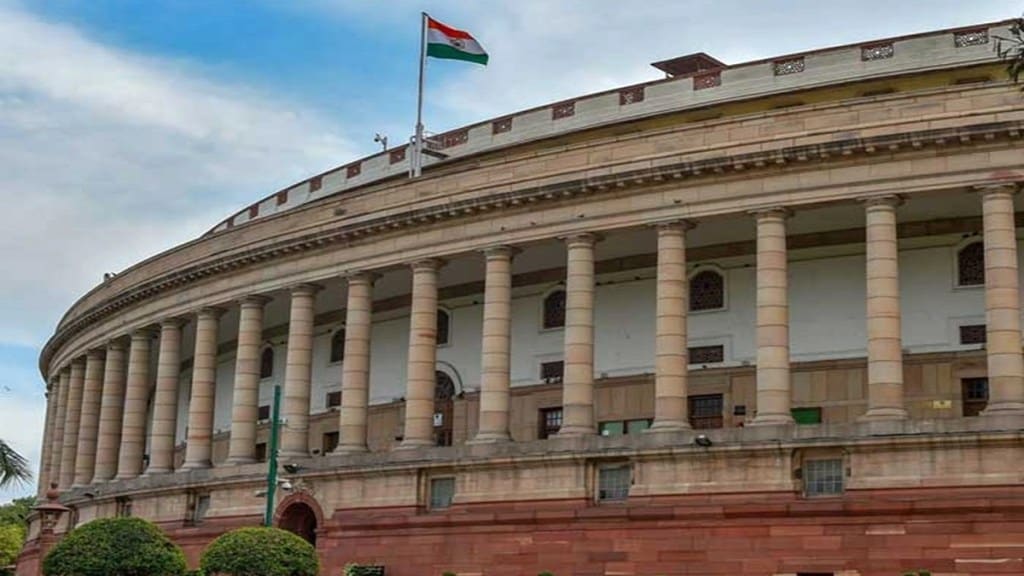The government will seek to decriminalise a wide gamut of economic offences through a new Bill to be introduced in the winter session of Parliament, official sources told FE. As many as 110 archaic – and at times bizarre — provisions in 35 laws, relating to 16 ministries and departments, will be axed or amended in one of the biggest drives ever, the sources added.The draft Bill is being vetted by the law ministry.
The department for the promotion of industry and internal trade (DPIIT), which is spearheading this initiative, is planning these comprehensive amendments in a bid to ensure greater ease of doing business for firms and ease of living for individuals.Prime Minister Narendra Modi, on Monday, said his government has so far scrapped about 2,000 archaic laws from the British era that required businessmen to be sent to jail over minor issues. The proposed Bill is the latest effort by the government in this direction, according to officials.
An illustrative list will reveal how irrational the penal provisions in some of the laws are: A person carrying a lantern through the forest at night in certain months of the year can be jailed for six months. If he allows his cattle to “trespass” into the forest land, he commits a crime worthy of a similar jail term. If a person puts up a board with the words “patent office”, he, too, can land up in jail. If postman delivers the letter in a drunken state, he is liable to a fine.
To be sure, jail term for these “offences” isn’t invoked in most cases. But since the provisions exist in the statute, they are prone to abuse. More importantly, they are no longer in sync with modern realities, and in many cases, they merely add to the compliance burden of companies.
ALSO READ Finance ministry seeks expenditure proposals for first supplementary demands for grants
“Through the new Bill, the Parliamentary clearances will be sought to amend stipulated provisions in the 35 laws,” said one of the sources. In most cases, the jail terms are proposed to be scrapped; instead, a fine or penalty will be imposed. In other cases, the penalty provisions are reworked, simplified. Provisions that look bizarre in today’s term, however, will be scrapped from the law books. Some of the legislations that are proposed to be tweaked are the Motor Vehicles Act; Pharmacy Act, 1948; Indian Post Office Act, 1898; Boilers Act, 1923; Copyright Act, 1957; Government Securities Act, 2006; High Denomination Banknotes (Demonetisation) Act, 1978; Public Debt Act, 1944; Food Corporations Act, 1964; Warehousing Corporation Act, 1962; Deposit Insurance and Credit Guarantee Corporation Act, 1961; Factoring Regulation Act, 2011; National Bank for Agriculture and Rural Development Act, 1981; National Housing Bank Act, 1987 and Agricultural Produce (Grading and Marking) Act, 1937.As many as six laws of the DPIIT are set for amendments, followed by five of the department of financial services, three each of the departments of economic affairs, health and family welfare, environment, forest and climate change, and two of the ministries of information and broadcasting, and food & public distribution. The ministries of electronics and information technology, agriculture, shipping, road transport, defence, housing and urban affairs, and the department of post will see at least one of the laws relating to them getting amended.
The task of decriminalising offences for India Inc is going to be a long and complex one. According to a report titled, Jailed for Doing Business, by the Observer Research Foundation, as many as 843 laws carry imprisonment clauses. Businesses face 69,233 compliance requirements, of which 26,134 carry imprisonment clauses. Of the 843 laws with imprisonment clauses, 244 laws have been formulated by the Centre, and the rest by states. Similarly, about a fifth of the compliances that can lead to jail term are part of the laws enacted by the Centre.


